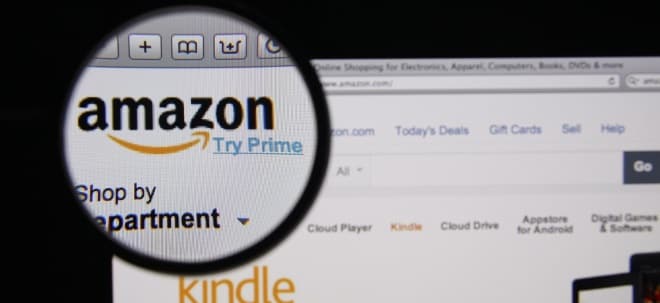Record-Breaking 365,000 Pounds of Trash Removed from U.S. Beaches by 40,000 Volunteers in Single Year
83% of All Items Collected at 2024 Beach Cleanups Were Single-Use Plastics
SAN CLEMENTE, Calif., July 15, 2025 /PRNewswire/ -- 11 million metric tons of plastic pollution enter our ocean each year — which is the equivalent of a trash truck dumping a full load of plastics into our ocean every minute of every day of the year. The Surfrider Foundation, an environmental organization dedicated to the protection of America's ocean, waves, and beaches, has been on the frontlines of protecting the ocean from the harms of plastic pollution for decades.
In states where Surfrider-sponsored plastic bag bans have been implemented, plastic bag litter has dropped by 50%.Surfrider's annual Beach Cleanup Report highlights the organization's national beach cleanup efforts and reveals the items most often collected — exposing the growing threat that rampant plastic pollution poses to both our ocean and human health, and how Surfrider's activists are tackling this issue head-on.
ACCESS SURFRIDER'S BEACH CLEANUP REPORT
"Beach cleanups play a critical role in addressing the plastic pollution crisis. They allow our volunteers to learn about the types of plastic that are found on our beaches and provide an entry point to learn more about the impacts of single-use plastics on our environment," explains Jenny Harrah, Surfrider's Healthy Beaches Program Manager. Despite the record-breaking efforts by their nationwide volunteer chapter network last year, Surfrider knows that there is no way to beach cleanup our way out of the immense scale and explosive rate of the global plastic pollution crisis. So they've made their beach cleanups serve a brilliant secondary function: data collection.
Last year, Surfrider volunteers logged the most number of individual trash items ever, with 870,000 itemized pieces of trash recorded into their national cleanup database, with 83% of it being plastic. This data provides an incredibly clear picture of what exactly is polluting our beaches and coasts, which Surfrider activists use to campaign for stronger plastic reduction legislation, such as "Skip the Stuff" bills that allow consumers to opt-out of single-use plastics in their takeout food orders, helping to stop plastic pollution at its source. Another powerful example is that in states where Surfrider-sponsored plastic bag bans have been successfully implemented, coastal plastic bag litter has dropped by 50% since the policies were first enacted in 2018.
Not only does Surfrider's beach cleanup data continue to prove that plastic is the most commonly found material on our beaches, but it also shows how plastic behaves once it reaches the environment. Plastic breaks down into smaller and smaller pieces, becoming increasingly difficult to clean up and a bigger threat to the health of coastal ecosystems. Out of the almost one million items found during 2024 beach cleanups, one-third (32.5%) were plastic fragments. These fragments infiltrate coastal food systems, harming not only wildlife but also posing a danger to human health.
Microplastics and plastic fragments bioaccumulate up the food chain — becoming more toxic the higher up the food chain you go. So even if you can't see anything wrong with a filet of fresh fish or the sushi roll on your dinner plate, your favorite seafood has an increasing chance of being contaminated by plastics and associated chemical pollutants once they've been ingested by marine life. Last week, a new report on nanoplastics in the ocean, microscopic fragments roughly the size of small bacteria, revealed that there are at least 27 million metric tons of nanoplastic pollution in North Atlantic seas alone — more than the combined weight of all wild land mammals.
Because so much of plastic is nearly impossible for consumers to avoid, like plastic packaging for instance, which at 145,000 pieces accounted for the third largest category of trash, Surfrider is campaigning for Extended Producer Responsibility (EPR) bills that will shift the cleanup and disposal costs back onto plastic packaging manufacturers. With over 140 EPR laws already on the books covering an array of hazardous and hard-to-dispose products in the U.S., it's time for plastic packaging producers to follow suit. Six states have passed EPR bills for plastic packaging, with more advancing annually. As a proven policy tool, EPR is essential to achieving a plastic pollution-free future, ensuring that producers — not communities — bear responsibility for the lifecycle costs of their products.
At current rates, the amount of plastic pollution entering our ocean is doubling every six years. If these trends continue, the total weight of plastic pollution in our ocean could exceed the total weight of all fish in the ocean by 2050. Only by turning off the tap of single-use plastic production, through legislative intervention and industry innovation, can we ensure that a sustainable vision for a plastic pollution-free future becomes a reality.
Surfrider's Beach Cleanup program is proudly supported by REEF and the Surf Industry Members Association through the Better Beach Alliance, which encourages all groups — individuals, organizations, and companies — to participate in the shared goal of ending plastic pollution. "Supporting Surfrider is REEF's way of supporting stewardship of our coastal communities and ocean planet. Our relationship with the Surfrider Foundation has been integral in striving to improve who we are and how we act as a brand," says Shea Perkins, Senior Marketing Manager at REEF.
"This report is more than a record of trash collected; it's proof of the power of advocacy, community, and collaboration. The vital work led by the Surfrider Foundation and its vast chapter network shows how grassroots action can drive national awareness and real change," says Vipe Desai, Executive Director at the Surf Industry Members Association. "Coastal communities rely on clean beaches for their health, economy, and way of life. We're proud to support this effort and help amplify Surfrider Foundation's ongoing impact to protect our oceans, waves, and beaches."
To learn more, and find out how you can join a beach cleanup near you, visit surfrider.org
About the Surfrider Foundation
The Surfrider Foundation is a nonprofit grassroots organization dedicated to the protection and enjoyment of our world's ocean, waves, and beaches for all people through a powerful activist network. Founded in 1984 by a handful of visionary surfers in Malibu, California, the Surfrider Foundation now maintains over one million supporters, activists, and members, with more than 200 volunteer-led chapters and student clubs in the U.S., and more than 900 victories protecting our coasts. Learn more at surfrider.org.
![]() View original content to download multimedia:https://www.prnewswire.com/news-releases/record-breaking-365-000-pounds-of-trash-removed-from-us-beaches-by-40-000-volunteers-in-single-year-302505484.html
View original content to download multimedia:https://www.prnewswire.com/news-releases/record-breaking-365-000-pounds-of-trash-removed-from-us-beaches-by-40-000-volunteers-in-single-year-302505484.html
SOURCE Surfrider Foundation


